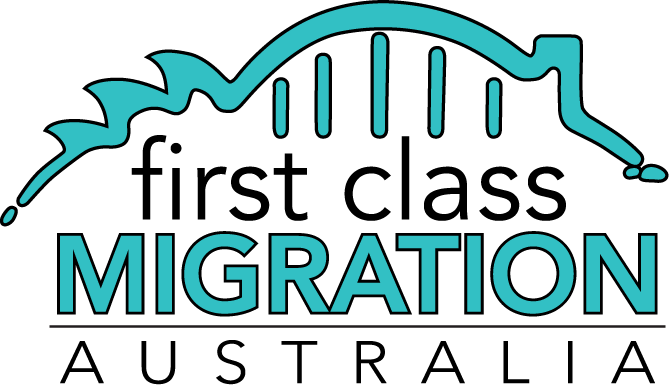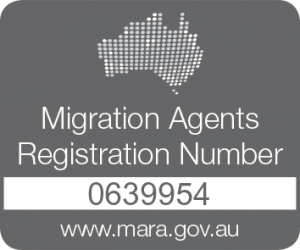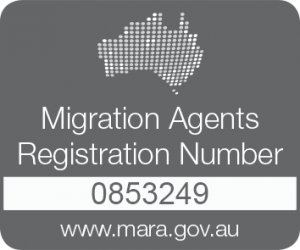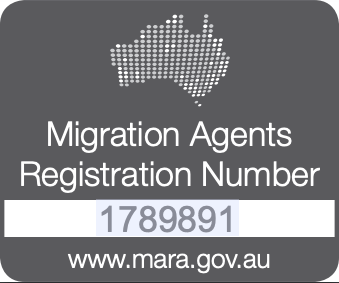Subclass 457 visa – Recent Government Announcement
Subclass 457 visa – Recent Government Announcement
Subclass 457 visa – Recent Government Announcement
On 18 April 2017, the Government announced a number of changes in relation to the temporary and permanent skilled migration programmes.
Changes to the approved occupation list – phase 1
The first phase of a number of intended changes to the approved occupation list for the subclass 457 programme has already been implemented – with amendments made to the existing legislative instrument that specifies approved occupations for the programme.
This instrument has two schedules, and lists the occupations that are approved for the purposes of the subclass 457 programme.
As of 19 April 2017, the lists contained in these schedules have been re-named:
- the Skilled Occupation List (SOL) as the Medium and Long-term Strategic Skills List (MLTSSL); and
- the Consolidated Sponsored Occupation List (CSOL) as the Short-term Skilled Occupation List (STSOL).
In addition, some significant changes have been made to occupations eligible for temporary and permanent skilled migration. From a subclass 457 perspective this includes:
- 216 occupations removed from the list of eligible occupations; and
- Caveats added to 59 other occupations
The occupation lists can be found following the link below:
We can advise that the following occupations have been REMOVED from the lists:
Understanding the caveats
Caveats are included ‘as a note’ in the relevant legislative instrument for certain occupations to limit their use in the context of the subclass 457 programme.
Such caveats aim to ensure that the subclass 457 programme is, as intended, focused on filling ‘skilled’ vacancies, with less risk of subclass 457 visa holders being hired to complete semi-skilled or low-skilled tasks, at the expense of the Australian workforce. In addition, these caveats will:
- provide much clearer guidance in terms of what occupations are considered skilled and fit within the programme;
- lead to processing efficiencies in the longer term;
- reduce reliance on the more subjective ‘genuineness’ requirement to address trends of concerns within this programme.
The following occupations relevant to our clients are caveated:
Group A: caveats relating to work experience only
Caveats are in place for the occupations listed below which exclude their use under the standard subclass 457 programme for positions that do not require a minimum of two years relevant work experience:
| Advertising Specialist | 225111 |
| Contract Administrator | 511111 |
| Finance Manager | 132211 |
| Graphic Designer | 232411 |
| Hairdresser | 391111 |
| ICT Project Manager | 135112 |
| ICT Support Engineer | 263212 |
| ICT Systems Test Engineer | 263213 |
| Information and Organisation Professionals nec | 224999 |
| Software Tester | 261314 |
| University Lecturer | 242111 |
Under policy:
- two years relevant work experience should be interpreted as two years full time work experience in the same or a similar occupation;
- unless they have significant concerns about the use of the subclass 457 programme for the nominated position, officers may be satisfied that this caveat does not apply if any job advertisements/job descriptions provided specify this as a requirement, or a visa application has already been lodged and the evidence provided clearly indicates that the nominee has at least two years relevant full time work experience.
Note: where a caveat applies, this does not replace any higher skills requirements that may be applicable at the visa application stage as per the occupation requirements outlined in ANZSCO.
We have not listed Group B caveats as this is all related to agricultural/rural/regional workers and we do not have clients who fall in to this bracket.
Group C: Occupation Specific Caveats
Accountant (ANZSCO 221111)
Baker (ANZSCO 351111)
Cafe and Restaurant Manager (ANZSCO 141111)
Chefs (ANZSCO 351311)
Chief Executive or Managing Director (ANZSCO 111111)
Conference and Event Organiser (ANZSCO 149311)
Cooks (ANZSCO 351411)
Corporate General Manager (ANZSCO 111211)
Corporate Services Manager (ANZSCO 132111)
Customer Service Managers (ANZSCO 149212)
Hotel or Motel Manager (ANZSCO 141311)
Management Consultant (ANZSCO 224711)
Marketing Specialist (ANZSCO 225113)
Massage Therapist (ANZSCO 411611)
Mechanical Engineering Technician (ANZSCO 312512)
Pastry Cook (ANZSCO 351112)
Recruitment Consultant (ANZSCO 223112)
Sales and Marketing Manager (ANZSCO 131112)
Supply and Distribution Manager (ANZSCO 133611)
Technical Sales Representatives NEC (note: includes education sales rep) (ANZSCO 22549)
Your dedicated case manager at First Class Migration Australia will be contacting you individually, or as a corporate client, to advise if you are effected by any of these caveats.
Managing Transitional cases:
The DIBP have advised that clients who lodged subclass 457 nominations and visa applications prior to the Governments Announcement for occupations which are now no longer approved for the purposes of the programmes will be given the opportunity to withdrawn and seek refunds. However, we advise our clients in this situation to sit tight and await further advice from First Class Migration Australia in this regard as this has not been confirmed through our professional Industry Association or through the relevant legislation process – we literally do not have access to the new legislative requirements so for the mean time we are advising our clients not to take any action in relation to their already lodged applications.
Changes to visa validity
As you would be aware, subclass 457 visas were generally granted for four years unless:
- a shorter period of employment was requested by the sponsor in the nomination;
- the sponsor was a ‘start up’ business with an approved sponsorship agreement for only 18 months;
- the sponsor’s contractual obligation covers a shorter period – if the visa is associated with an overseas business sponsor who was approved on the basis of Regulation 2.59(h)(ii); or
- a shorter period is appropriate for a MOFU (member of the family unit) extension visa applicant –
For subclass 457 visas granted on or after 19 April 2017, under policy, the maximum four year visa period will, however, only be available where the primary applicant’s occupation is on the MLTSSL (previously known as the SOL).
For all other applicants where their occupation is not on the MLTSSL, a maximum visa period of two years will be available. This includes primary visa applications, lodged, which are still pending a decision on 19 April 2017.
Please note, your case manager at First Class Migration Australia will be contacting you to advice you if your visa is now affected by the new visa validity periods as unfortunately most of clients are those who are NOT on the MLTSSL and will therefore only be approved 2 year visas – please also note this is only for applications approved after 19th April 2017.
Note: Subsequent entrants (i.e. secondary visa applicants) wanting to join a primary subclass 457 visa holder will not be impacted by this new policy. That is, subsequent entrants can still have their subclass 457 visa ‘match’ the visa period of the primary visa holder – even if this is longer than two years (unless MOFU extension limits apply).
What is changing for 1 July 2017?
Further changes to the subclass 457 programme are planned for 1 July 2017. These include:
- possible further adjustments to eligible occupation lists;
- an expansion of client cohorts for whom mandatory skills assessments are required;
- minor changes to the training benchmarks for subclass 457 sponsors; and
- subclass 457 programme no longer excluded from standard policy around penal checks – with police certificates required to be provided from countries a visa applicant has lived in as per current policy for other visa subclasses.





